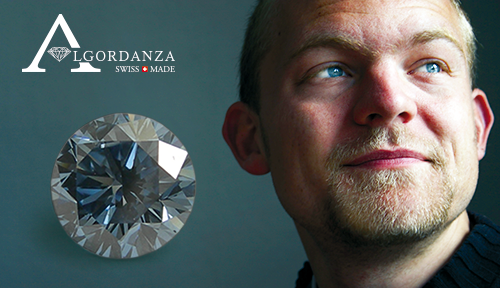悲しみ、痛みを表現する
【英知の言葉】古くから、人は愛する人との別れを嘆き、悲しんで来ました。古今東西のグリーフの表現は、豊かで、幅広く、先人の英知に満ちています。この英知のセクションには、先人の考えた、死とは何か、生とは何か、悲しみと向き合うとはどういう事か、といった見識が含まれています。言葉にならない悲しみに、言葉を与える作業に貢献できればと考えています。
まだまだ小さなコレクションですが、グリーフに関連する英知の言葉を集めています。数が増え次第、カテゴリーも増やしていく予定です。
終わりのないパズル
こうした試練に立ち向かうのはキャスリンがこれまで体験したどんなものともどこか違うという感じがしている。(中略)しかし、いまや無限の数のかけらがあるように思われ、どうしたらぴったり組み合わさるのか、いやそもそも、ぴったり組み合わさるのかどうかも、わからなかった。かけらをいくつか組み合わせると、いっとき、休息と慰めが得られるが、いつも新たなかけらが付け加わり、未完の「パズル」はほとんど毎日のように形を変え、新たな試練が現われる。キャスりンは安定と慰めを得ては失うということを何度もくりかえす。生きつづけるすべを見つける
ためにできるだけのことをするなかで、自分が人生で起こる出来事を支配する力をいかに少ししか持っていないかを悟る。完全な支配力はなくても、祈りに信頼を見いだす。いまははっきりした方向は見えていなくでも、道はある。予期せぬことがさらに起こると覚悟し、自分と子どものジョシュとセーラは、生きつづけるかぎりマークの死を受け入れることを学んでいくと予感する。
(トーマス・アティッグ:「死別の悲しみに向きあう」、1998より)
引き裂かれた二人
「ヘドウィグ・アンド・アングリーインチ」(2001)挿入歌、「オリジン・オブ・ラブ」
When the earth was still flat,
And the clouds made of fire,
And mountains stretched up to the sky,
Sometimes higher,
Folks roamed the earth
Like big rolling kegs.
They had two sets of arms.
They had two sets of legs.
They had two faces peering
Out of one giant head
So they could watch all around them
As they talked; while they read.
And they never knew nothing of love.
It was before the origin of love.
The origin of love
And there were three sexes then,
One that looked like two men
Glued up back to back,
Called the children of the sun.
And similar in shape and girth
Were the children of the earth.
They looked like two girls
Rolled up in one.
And the children of the moon
Were like a fork shoved on a spoon.
They were part sun, part earth
Part daughter, part son.
The origin of love
Now the gods grew quite scared
Of our strength and defiance
And Thor said,
"I'm gonna kill them all
With my hammer,
Like I killed the giants."
And Zeus said, "No,
You better let me
Use my lightening, like scissors,
Like I cut the legs off the whales
And dinosaurs into lizards."
Then he grabbed up some bolts
And he let out a laugh,
Said, "I'll split them right down the middle.
Gonna cut them right up in half."
And then storm clouds gathered above
Into great balls of fire
And then fire shot down
From the sky in bolts
Like shining blades
Of a knife.
And it ripped
Right through the flesh
Of the children of the sun
And the moon
And the earth.
And some Indian god
Sewed the wound up into a hole,
Pulled it round to our belly
To remind us of the price we pay.
And Osiris and the gods of the Nile
Gathered up a big storm
To blow a hurricane,
To scatter us away,
In a flood of wind and rain,
And a sea of tidal waves,
To wash us all away,
And if we don't behave
They'll cut us down again
And we'll be hopping round on one foot
And looking through one eye.
Last time I saw you
We had just split in two.
You were looking at me.
I was looking at you.
You had a way so familiar,
But I could not recognize,
Cause you had blood on your face;
I had blood in my eyes.
But I could swear by your expression
That the pain down in your soul
Was the same as the one down in mine.
That's the pain,
Cuts a straight line
Down through the heart;
We called it love.
So we wrapped our arms around each other,
Trying to shove ourselves back together.
We were making love,
Making love.
It was a cold dark evening,
Such a long time ago,
When by the mighty hand of Jove,
It was the sad story
How we became
Lonely two-legged creatures,
It's the story of
The origin of love.
That's the origin of love.
始まり
死は終りを意味するが、残された者には始まりを意味する。
E・シュナイドマン
終わりのない痛み
グリーフの始まりがあり、グリーフの真ん中があり、そしてあなたの残りの人生がある
(キャンディス・ライトナー:MADD - 飲酒運転に反対す母の会 - の設立者)
悲しむ事を暮らす
わたしは,はてしない毎日を悲しみのうちに暮らすばかりでなく、毎日を悲しみのうちに暮らすことにつ
いて考えながら毎日を暮らすのだ。
(C・S・ルイス「悲しみを見つめて」西村徹訳、1994)
それぞれの悲しみ方
あなたは、あなたの心に触れたものにしろ、あなたを動転させたものにしろ、あなたを叩きのめしたものにしろ、それがどんなものでも何ひとつ迷うことなく、あきらめられる人なのよ(中略)。イーサンが死んだときも、あなたはあの子の部屋のドアに貼ってあった、ワッキー・パックのシールを1枚一枚全部剥がした。そしてあの子のクロゼットと箪笥をきれいさっぱりからっぽにした。まるでなかなか厄介払いできなかった他人の持ちものみたいに。さらにあなたは地下室にあったあの子のがらくたを近所の人に勧めてまわった。竹馬や橇やスケートなんかをね。それでみんながどうしてそれらを受け取らないのか不思議がった(中略)。あの子の死をあなたが嘆き悲しんだことは分かっている。でも、あなたの経験のしかたには、なんというか、どこか抑制されたところがあるのよ。それが愛であれへ悲しみであれ、なんであれ。あなたは、まわりも変えず自分も変わらず、人生のうわずみをすくって生きていこうとしているのよ。
(アン・タイラー:「アクシデンタル・ツーリスト」田口俊樹訳、1989より)
相手の中の自分の死
喪失の経験がつらいのは、同じ時間と経験を共有しただれかが、その死ごと記憶をあちら側へ奪い去ってしまうから。記憶とは、そのひとのなかに自分が生きていると いうことだから、そのひとの記憶のなかに生きていた自分の大切な部分をもぎとられてしまう。
(「おひとりさまの老後」上野千鶴子)

